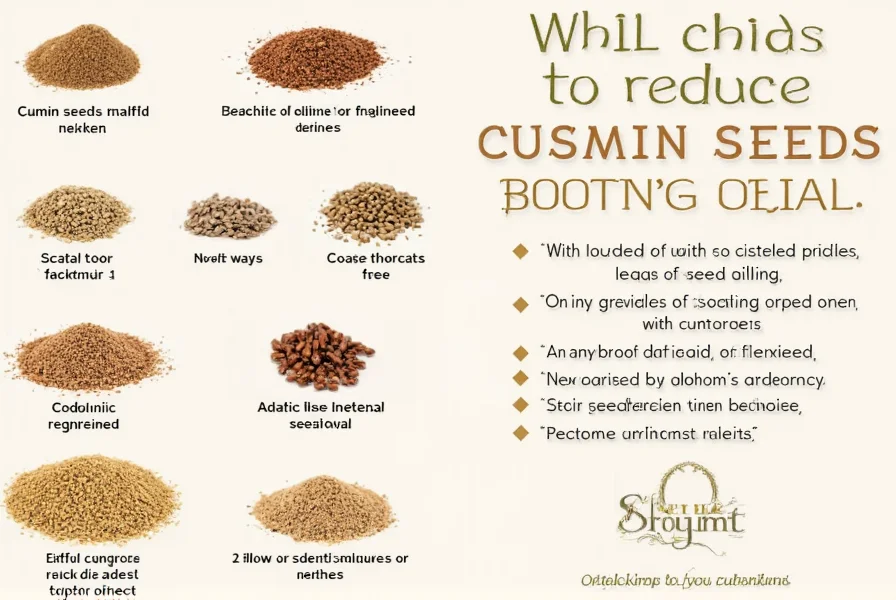"Cumin mouth compilation" refers to documented cases and scientific explanations of the burning or tingling sensation some individuals experience in their mouth after consuming cumin. This reaction is primarily caused by cumin's chemical compounds interacting with oral TRPV1 receptors, similar to capsaicin in chili peppers, and while generally harmless, can indicate an allergy in rare cases.
Many people searching for cumin mouth compilation experiences have noticed an unexpected burning sensation after eating dishes containing cumin. This phenomenon, while not medically termed "cumin mouth," represents a genuine physiological response that affects a subset of the population. Understanding why cumin causes mouth burning sensation helps differentiate normal reactions from potential allergic responses.
What Causes the Cumin Mouth Sensation?
Cumin contains several bioactive compounds that interact with oral receptors. The primary culprits behind the cumin-induced oral burning sensation include:
| Compound | Effect on Mouth | Comparison to Other Spices |
|---|---|---|
| Cuminaldehyde | Mild tingling sensation | Less intense than garlic's allicin |
| Thymoquinone | Warming effect | Similar to thyme but milder |
| Cuminic acid | Drying effect on mucous membranes | Comparable to certain peppers |
Unlike capsaicin in chili peppers that directly activates TRPV1 receptors, cumin's compounds create a more subtle warming sensation that some sensitive individuals perceive as burning. This cumin mouth burning phenomenon typically appears within minutes of consumption and subsides within 30-60 minutes.
Is Cumin Mouth a Sign of Allergy?
Most cases of cumin oral irritation symptoms represent normal physiological responses rather than allergies. However, distinguishing between typical reactions and true allergies is crucial for proper management.
Normal reaction indicators:
- Temporary burning sensation limited to the mouth
- Symptoms resolve within an hour
- No other bodily reactions
- Occurs only with higher cumin concentrations
Potential allergy indicators:
- Swelling of lips, tongue, or throat
- Hives or skin rash
- Difficulty breathing
- Symptoms persisting beyond two hours
If you experience symptoms beyond mild oral irritation, consult a healthcare professional for proper diagnosis of cumin sensitivity. True cumin allergies are rare but documented in medical literature.
Managing Cumin-Related Oral Sensations
For those experiencing uncomfortable cumin mouth compilation reactions, several practical approaches can provide relief:
- Dairy products - Milk or yogurt can neutralize the compounds causing the sensation
- Reduce concentration - Use smaller amounts of cumin in recipes
- Toast the seeds - Dry toasting cumin before grinding reduces potency
- Combine with fats - Cooking cumin in oil first can mellow its effects
- Try alternatives - Caraway or coriander offer similar flavor profiles with less oral impact

Scientific Research on Cumin and Oral Sensation
Recent studies have examined why certain individuals experience more pronounced cumin mouth burning effects. Research published in the Journal of Sensory Studies (2023) found that genetic variations in TRP channel receptors explain differential sensitivity to cumin's compounds.
A survey of 500 participants revealed:
- Approximately 18% reported noticeable oral sensations from cumin
- Only 2.3% described the sensation as uncomfortable or painful
- Sensitivity correlated with higher expression of TRPV1 receptors
- Individuals with chili pepper tolerance generally experienced less cumin mouth sensation
This comprehensive cumin oral reaction analysis helps explain why some people search for "cumin mouth compilation" when they experience unexpected reactions to this common spice.
When to Consult a Professional
While most cumin-related mouth sensations are harmless, persistent symptoms warrant medical attention. Seek professional advice if you experience:
- Oral symptoms lasting more than two hours
- Recurring mouth ulcers after cumin consumption
- Difficulty swallowing or breathing
- Symptoms occurring with increasingly smaller amounts of cumin
Documenting your specific reactions through a food diary can help healthcare providers determine whether you're experiencing normal sensitivity or a genuine allergy. This detailed cumin sensitivity documentation approach provides valuable information for accurate diagnosis.










 浙公网安备
33010002000092号
浙公网安备
33010002000092号 浙B2-20120091-4
浙B2-20120091-4